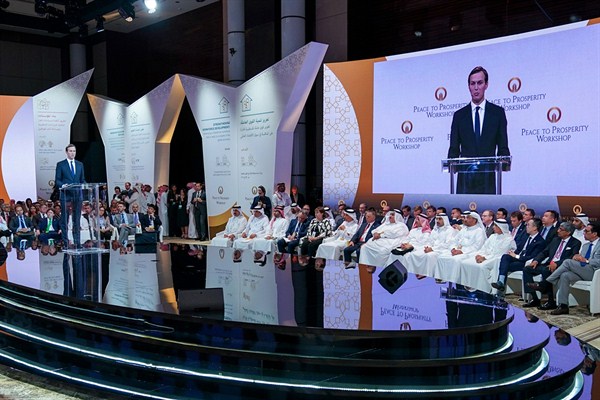President Donald Trump views foreign policy through the narrow lens of economic self-interest. He has reduced the notion of American power and influence to a question of whether the United States is getting a “good deal,” measured only in terms of who is paying for what—say, the cost of basing U.S. troops. Gone are any references to the intangible benefits of international cooperation, let alone the common good. It’s how he has approached relations with NATO and with America’s allies in Asia. In recent days, this economic-centric view of U.S. foreign policy has been on display in Trump’s clumsy and erratic Iran policy, and in the underwhelming rollout of his so-called plan for peace between the Israelis and the Palestinians.
Economic incentives and economic pressures are, of course, legitimate tools of international relations and fall along a continuum from positive inducements and peaceful transactions to coercion and pressure that, if insufficient in achieving their aims, can be precursors to open hostilities and war. Think U.S. oil sanctions against Japan in the run-up to World War II, or, at the other end of the spectrum, the Marshall Plan as an American investment in Europe’s postwar economic recovery that created huge political and security benefits to the U.S. that lasted for decades.
But what Trump and his administration repeatedly miss is that economics alone don’t determine national interest. States and their leaders care about many other attributes of national power and identity. They care about how other countries treat them, and whether their interests have been acknowledged. Respect and dignity are potent values that shape the views of many countries, particularly those that are well aware that they are less powerful than the United States. Diplomats are trained to demonstrate such respect for the inherent rights of their interlocutors; many summits or negotiations succeed or fail over whether the weaker party perceives that they were treated with respect, and their legitimate interests taken into account.

